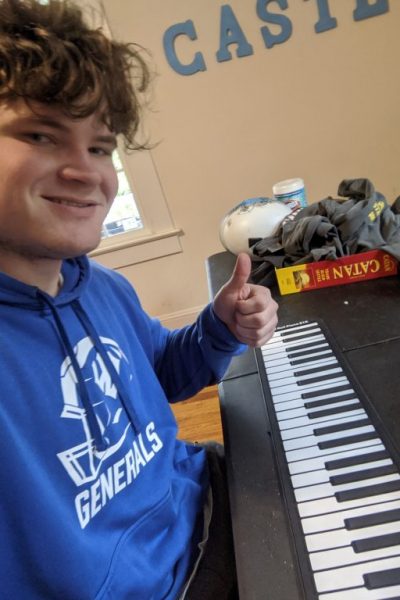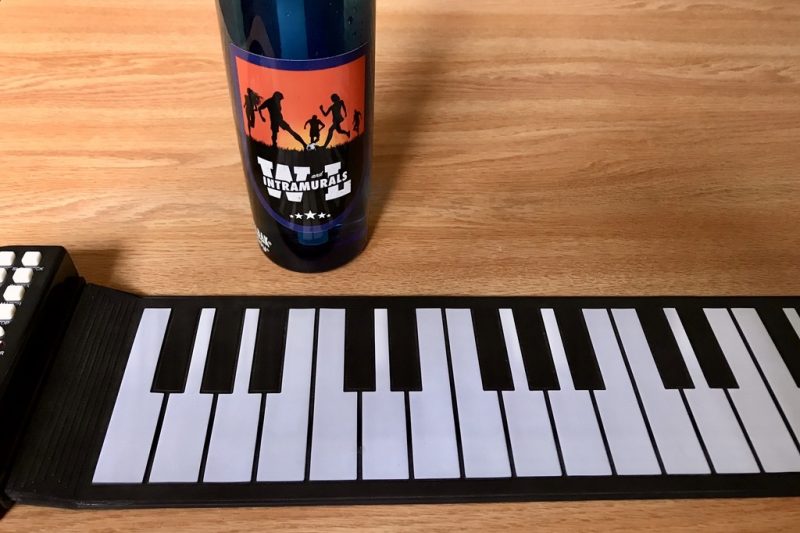Roll-Up Pianos Help Seniors Graduate Eight of the 23 students enrolled in music instructor Shuko Watanabe Petty’s Piano I and II classes had no piano at home. When instruction went online, she found a way to help.
For some of the seniors taking Shuko Watanabe Petty’s beginner piano courses, the move to virtual instruction posed a serious problem. They had no piano at home, but they needed to complete the course to fulfill Washington and Lee University’s experiential learning requirement and graduate on time.
“I just couldn’t see how they could get credit without having something to practice on,” Watanabe said. Even cheap electric pianos can cost hundreds of dollars, and she knew it would be unreasonable to ask students to provide their own.
She had once played a roll-up piano—a thin mat with raised keys that mimic a piano keyboard, attached to a speaker with controls for volume, tone and other features—at a friend’s house. When she checked online, she found decent ones for around $50, and she thought they might work for her students.
Eight people in her courses needed a piano. The Music Department chair, Professor Greg Parker, found space in the department budget to purchase them, and Kati Grow, the department’s administrative assistant, got them ordered and shipped to students quickly. The pianos were delivered in time for the first week of virtual instruction.
For Watanabe, whose teaching style involves a lot of one-on-one interaction and correction of technique on the spot, virtual instruction required learning new tools. She used Zoom’s breakout rooms, for example, to check students’ fingerings and hand positions while the rest of the class practiced. The roll-up pianos functioned admirably, if not always perfectly.
“Sometimes the keys didn’t respond,” she laughed. In the performances they recorded for her, students occasionally exclaimed, “That wasn’t me! That was the piano!”
Watanabe was impressed by the way her students stuck with it. “They worked very hard,” she said, even with all the disruption. “They really wanted to learn music.”
For Phil Davis ’20, who used a roll-up piano to complete the class, Watanabe’s consideration was touching.
“When we went online,” he said, “I thought there was no way we could continue to learn piano, but then Professor Watanabe got us the roll-ups. I’m really appreciative of how much she cared about a bunch of non-music majors trying to learn an instrument and graduate.”
 Phil Davis ’20 practices on one of the roll-up pianos sent out to students by music instructor Shuko Watanabe Petty.
Phil Davis ’20 practices on one of the roll-up pianos sent out to students by music instructor Shuko Watanabe Petty. Roll-up piano
Roll-up piano
You must be logged in to post a comment.